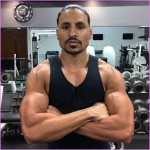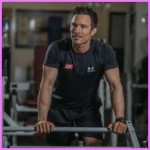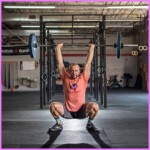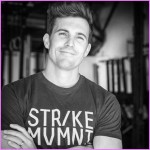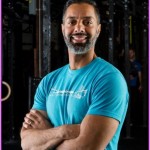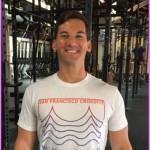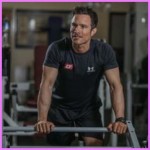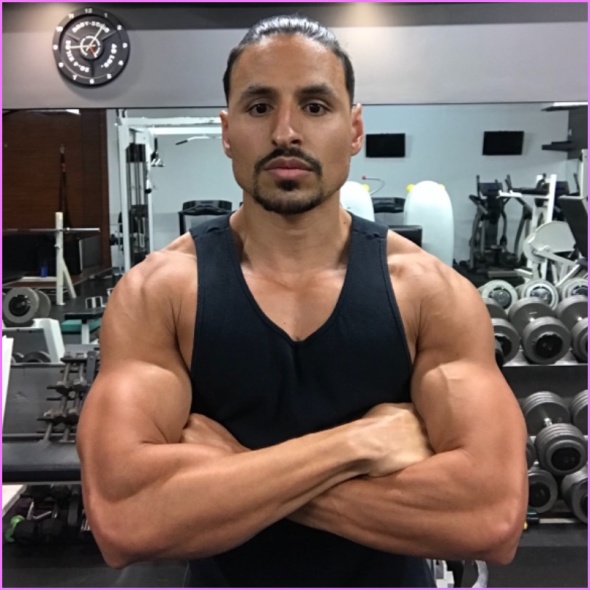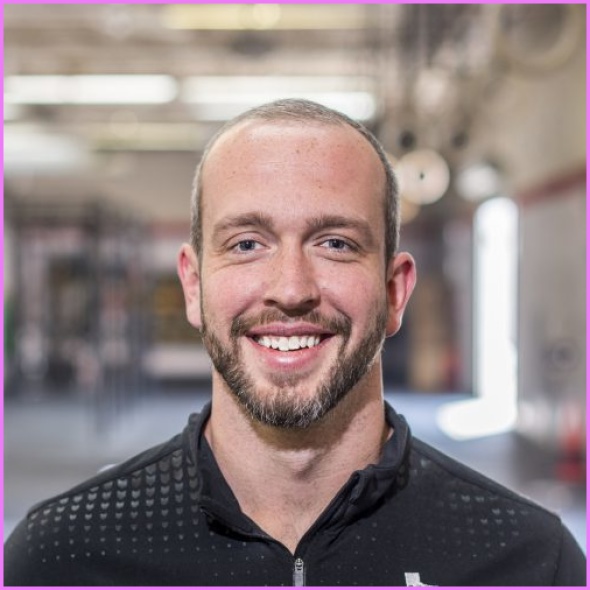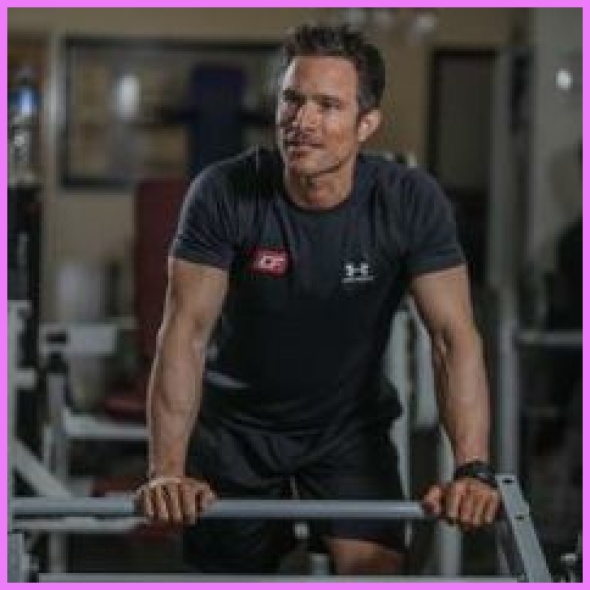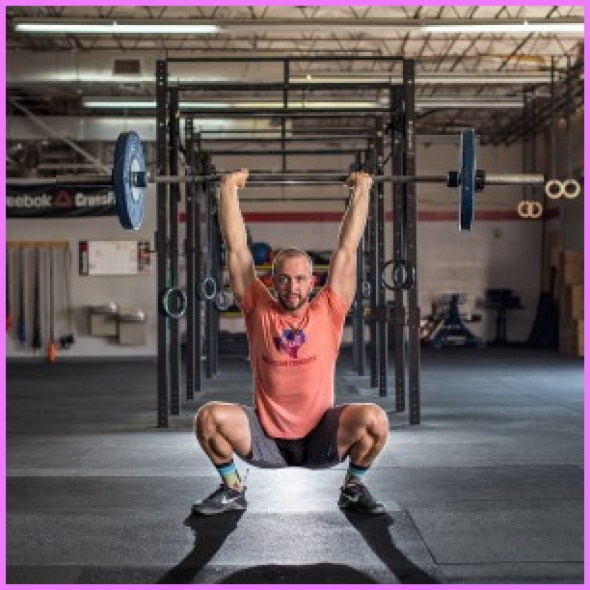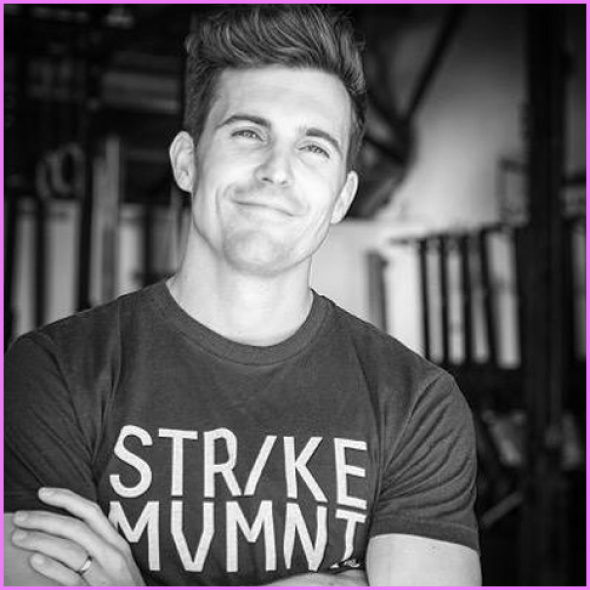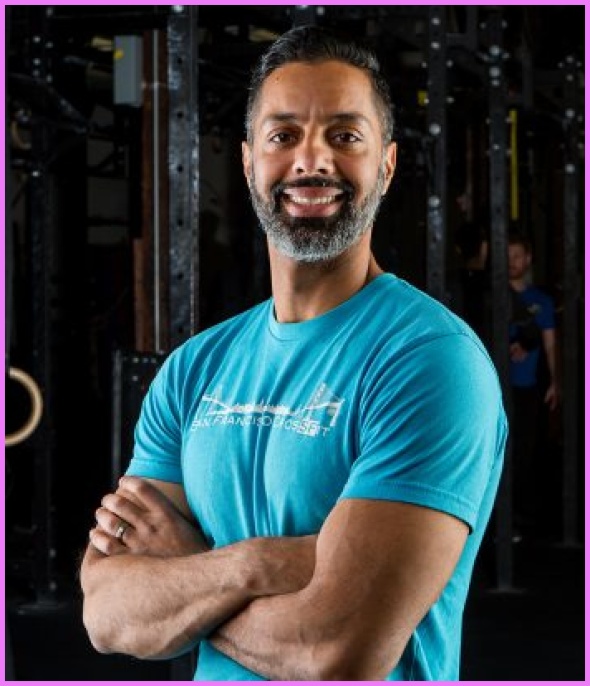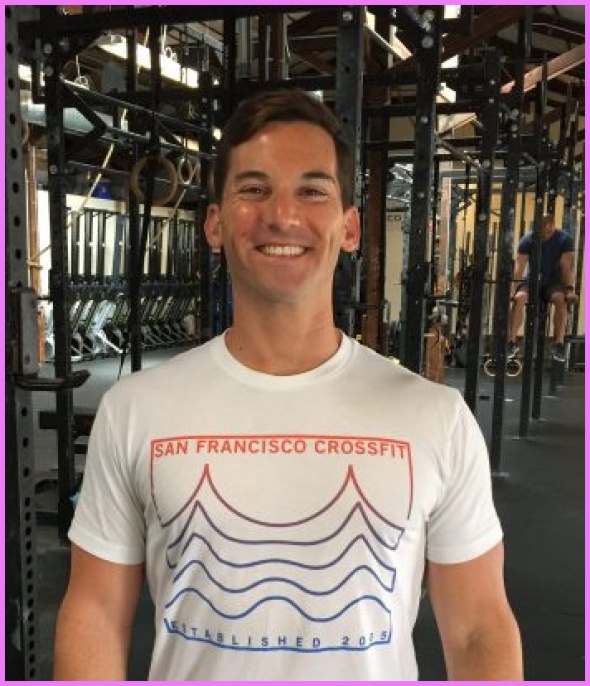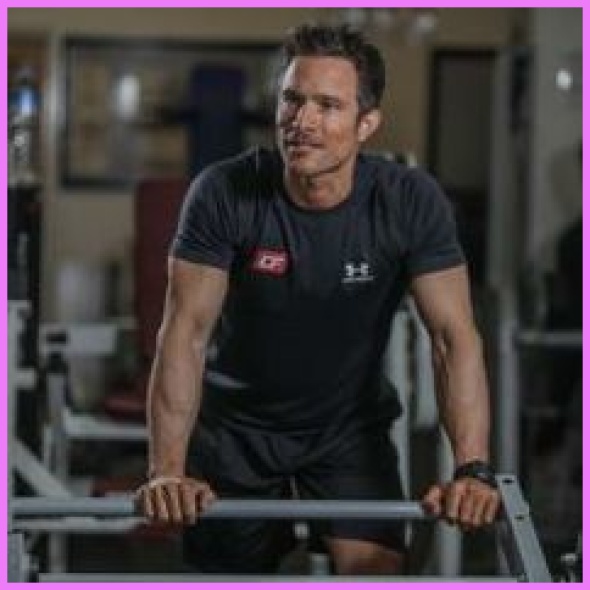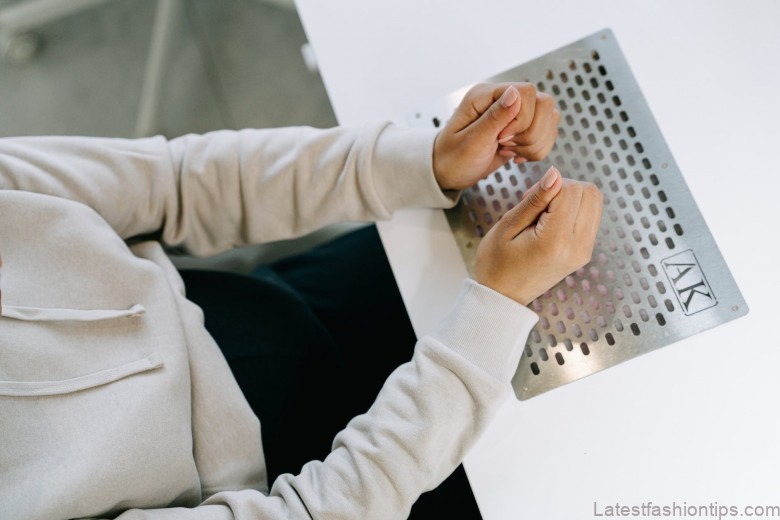Style & Health Carl Interviews Certified Strength & Conditioning Coach Ryan Masters Carl: Hey guys! Carl here with this style blog and today, I’ve got Ryan Masters. You guys have heard me talk about his my blog, talk about what he does over at The Workout Corner, so you can go check on his website. He’s a certified training and conditioning coach. Did I just kill that, Ryan? Ryan: A little bit, yeah, certified strength and conditioning specialist, but the same idea. Carl: Well, the thing is, guys, is that we’re here in Arizona together. Normally, we’re on other sides of the county. Ryan just moved out to Colorado. I’m in Wisconsin, as you know, but the idea was hey, I got him here and I think that when it comes down, our bodies are so important when it comes to style.
Style Health Carl Interviews Certified Strength Conditioning Coach Ryan Masters Photo Gallery
So I’ve got a number of questions that I have for Ryan and I’m going to go ahead and ask him right now, but Ryan, really quick, I’d like for you to take 30 seconds to tell us a little bit about yourself. Actually, you can take a minute. Go ahead and tell us a little bit about yourself and what you do and a little bit more of background info for the people that have never heard of you. Ryan: Sure! Well, I appreciate it. Again, it’s exciting meeting you in person finally. Like you’ve said, we’ve been buddies for a while and it’s great to finally meet a person who does something different about that. Yeah, a little bit about me, I’ve been training and working out forever. Probably like a lot of guys, I just was never seeing results. I was going to the gym. I was eating healthy and it wasn’t until at one point when I went to the beach or I went to the pool actually and I was with a friend, girl friend that I had known for a while, and when I took my shirt off, she was like, Oh, I haven’t seen that before. That wasn’t there before, because I had a little bit of a gut. It was kind of tongue-in-cheek, but at the same time, those are the little zingers that really come and get you.
I was just like, okay, no more of that, so I really Carl: How old were you at that time? Ryan: I was 24 or 25. Carl: 24 or 25? Ryan: Yeah, so it was about three or four years ago. Since then, I said, Okay, enough of this working out and eating healthy, but not seeing results, and I really put my nose to the grind. I went through the books, went through the training, and was able to get the transformation that I finally wanted, the results in terms of working out. And I’ve been on that kick ever since because I believe my personal philosophy, and hopefully I’m not running out of minutes here, it’s just that working out for me is not about looks. It’s about the disciplines and the training and improving yourself, kind of like what you’re talking about, just the image and the self-confidence that you get from working hard and just putting your nose to the grind. Carl: Well, what I really liked is that you focused on those three aspects. You focused on not just exercising, lifting weights and the whole fitness aspect, but it was also about the rest and it was about the nutrition, and those are things that I don’t feel a lot of guys talk about. I see guys in the gym all the time that are huge and they got a big stomach and they’ve got big arms, but that’s not where I want to be in. I’ve told you, I’m almost 37 years old now. I noticed that my body is changing, things are slowing down, my metabolism, so I realized that eating healthy is a big component, and I’ve loved that about your systems and what you’ve got today. You don’t just talk about lifting weights.
It’s also about you need to rest and you need to eat the right food. Ryan: Right, exactly. It’s something I call the Workout Trinity, which is as you mentioned, it’s food intake, exercise, and rest. It’s one of those things that naturally we think, especially when I first started it, I want to work out and get in shape. What do I go to do? I’ve got to go to the gym and hit the weights. That’s just the connection there, so I go to the gym, toss some weights around, and then I’ll be in shape. Unfortunately, that’s not the case at all. As you mentioned, food intake or nutrition or diet, that is more important in some cases than the actual exercise. What can really kill guys and it’s tough for me to see because they’ve got the motivation, they’re going to the gym, but because they’re missing the other two elements, they don’t see the results. And so, they’re like, It must not be in the cards for me, or It’s genetics, or It’s just I’m not meant to be in shape and so they kind of fall off the wagon. Carl: Okay. Well, for today, one thing I would like to do is I want to talk a little bit about I want to spend this time asking you some questions that I think a lot of the guys have out there.
And if they can take something from these questions, I think they’re going to be able to run with it. We talked about how 20% of the information, if they just act on it, would give them 80% of the results, the Pareto Principle. I’m going to ask you a little bit about each, but let’s talk about first nutrition and putting things in your body. One of the things you talk about is a lot of water. Why? What’s the deal with water and why can’t I be sucking down Cokes? What can’t I be sucking down coffee all day? Why does it have to be water? Ryan: Water is just like what oil is to an engine on a car. It keeps everything running. That’s what water is for our body. It’s tricky in the sense that we can be in a state that’s semi-dehydrated, so we’re still running around, walking around, feeling okay, but when we’re semi-dehydrated, our body starts shutting off functions such as burning fat or building muscle, and it’s not anything we’re going to feel going from day to day, but when we’re fully hydrated, those operations and mechanisms are still running. In terms of when we get into drinking soda, that’s when you’re doing double damage because you’re drinking what’s called empty calories, so you’re putting all this junk energy into your body. Your body has nothing to do with this, like what am I going to do? You’ll go, Well, whatever, I’ll just burn the fat… Carl: I’ve heard people talk about a gallon a day, a gallon and a half a day. Ryan: Um-hmm. Carl: Do you recommend that much water? Ryan: I would go up to a gallon depending on you know, a lot of it is going to depend on your level of exercise.
I wouldn’t say tomorrow, go start drinking a gallon of water just because I know what you’re doing in terms of exercise right now, but if you are seriously hitting the gym a lot and you are serious about putting on mass or losing fat, yeah, you want to get up to about a gallon of water. Now, that can include juices and fruits and vegetables. You’re not necessarily just drinking a straight jug because you get water from almost all the food that we eat. That’s a common benchmark that you hear. You also hear about the eight glasses a day. I think that was created forever ago, but we want a little bit more than that. Carl: Okay, so we’ve talked about water. Let’s assume we can debate about green tea and coffee and all this stuff, but guys, start drinking your water. So when it comes down to foods, can you give me some ideas of foods that you cannot go long without? We know tons of things out there are bad for you, cut out pop, cut out what is not really food, but I guess be careful with beer, anything processed. One of my rules in our family is if we don’t know where it comes from, then I’m not going to feed it to my kids, but can you name just a few foods which if you include these in your diet, you’re doing great? Ryan: Okay. Well, an apple a day keeps the doctor away, so kind of a cliché, but apple is a great food. I eat an apple every day and/or banana.
You also want to look at some type of vegetables, leafy vegetable like spinach is good or something dark green like broccoli Carl: Now, spinach is a great example because so many people have iceberg lettuce on their hamburgers, and we simply just replace it with spinach. We put spinach in our omelets in the morning, which you’re going to mention eggs, eggs to me seem like one of the great thing that happened. Ryan: Yeah, eggs. You’ve probably heard when it comes to building muscle, protein is a key ingredient. You want a lot of protein. Eggs are the best source of protein because it is most the easiest way to put it is it’s easily digested by our body. It’s all the protein blocks that we need for the body to take and then go start building muscle with. Without getting it too complicated, not all proteins are created equal. Proteins from soybeans are missing certain elements that the body can’t just take that protein and start building muscle. It needs to find protein from somewhere else, put them together, and then it’s ready to go build the muscle, whereas eggs, it’s everything you need right there, so the body takes it and it’s ready to build muscle, and they’re easy to cook. I think another thing is when I look at foods, in addition to being healthy and helping us, is it easy to cook? Can you eat it in different ways? Because you don’t want to be eating the same thing over and over and get stale and boring, but we’ve got to keep the human side to this. Carl: I’m a meat-eater.
Everyone knows I came from Texas. Let’s talk about meat. What about chicken? Ryan: Chicken is great. Chicken, absolutely. Lean meats are good, salmon, fish. Salmon is a great fish. It’s got fat, but it’s healthy fat. Carl: What about things like tilapia, cod? I see a lot of other fish out there. Can you go wrong with anything that’s fish? Ryan: Tilapia is good and then any other fish. I don’t know if there’s really any fish that you could go wrong per se. Chicken, turkey is good, pork is okay. You just want to watch for the fat, and even with the red meat.
Red meat is good, but you want to make sure you’re getting lean, not like prime rib. That can be a lot of fat, so you want to steer clear of that or use that in moderation. Carl: Okay, so we’ve talked about fruits. We’ve talked about vegetables. We’ve talked about meats. We’ve talked about eggs. Let’s talk about things that you should avoid. We know the pop. We know the chips, but what else should we just stay away from? Ryan: Let me give you some guidelines. This is what I use when I’m shopping instead of saying a particular food because that can really vary. I share the same belief as you as far as the processed foods. I really believe that leads to a lot of the diseases and cancers that we see later in life because of all the chemicals that are in the food, so one standby rule is when you’re shopping, you flip whatever you’re thinking about getting over and you look at the ingredient list.
And if you can’t read those ingredients, then you probably shouldn’t be eating it. Carl: One thing that we do is we shop only on the outside of the grocery. Ryan: That’s another good one. Carl: So we don’t go in the center unless we’re going to get paper towels or plastic spoons, but really, if I don’t know what animal or where it came from, what plant, I’m not buying it. Ryan: Right, so those are two good rules to use, guidelines to follow when you’re shopping. Carl: Another one, if it comes through your window, don’t eat it when it comes through your car window. Ryan: Yes. You’ve got to be careful with those, too. Carl: Okay. This is just the tip of the iceberg. Obviously, there are entire courses and books written on this, so we’re not going to go too deep in it. Let’s talk about rest.
Guys, notice I’m not talking about fitness yet because these are the things that people miss on, the nutrition and the fitness, so let’s talk about rest. How do you define rest? R8yan: There are a couple of things when it comes to the rest category of the Workout Trinity. Obviously, you have your straight up rest where you’re literally sleeping, so you want to shoot for six to eight hours a night because your body doesn’t build muscle when we’re in the gym. We’re not actually building muscle; we’re tearing our muscles down, and our body builds muscle when we’re sleeping. That’s when it’s literally taking the stuff from the eggs and whatever else you eat and putting it on the muscles. So if you’re cutting your sleeping time short, well, then you’re not going to be getting any bigger. That’s a key component, but that’s direct rest. There’s also indirect rest, which is this week, this week we are in Arizona. We’re running, but I’m not hitting the gym hard, lifting hard. You may have seen me eating some things this morning that other Carl: Yeah, you had about how many waffles did you have? Ryan: I think I had about seven or eight waffles with syrup and it was delicious, but this is why we train hard, so that when you are on vacation or when you’re on trips, you can rest and play hard, too, and not feel bad. You know, I don’t feel guilty about eating those. They were delicious and they were worth it.
The last part, another good thing to consider is again, when you’re working out a lot, you’re tearing down and you’re causing a lot of stress to your body and it’s good to get a massage at least once a quarter. Nowadays, massages are popular especially in the states. You can go to Massage Envy or somewhere for like 50 bucks, well worth the money. To say that it’s too expensive is just so Carl: We see in United States that people are always saying, I don’t have time to sleep. They go to bed. They’re on Facebook until 10 in the morning. They get up at 60 a.m. They do a triple shot of espresso to wake up. If you’re doing this to yourself, is this going to stunt your growth and your development of your muscles? Ryan: Yeah. That’s where we’re looking at. The kind of stuff that I teach as far as a big philosophy of mine is we bend our environment to build our body, and a lot of people, the environment breaks their body and they let the environment bend and change them, and that’s the wrong way to do it.
I don’t consider myself a bodybuilder at all. That’s not how I trained, but if you’re trying to just put on muscle, get that Spartan look, you have to start taking command and control of your life and changing it to help build your body. And so, that type of lifestyle is not going to be conducive to getting it. Carl: What about rest periods between workouts, both weights and between cardio? How does that work? Ryan: This is a very broad brush, so it can really, really depend based on the training and what your goals are and what you’re trying to accomplish, but generally, you want at least 24 hours to 48 hours between workouts. Carl: So working out seven days a week is not going to lead to a better body? Ryan: Yeah, and that’s a big misconception again because it kind of makes sense. It’s like, I’ll just hit the gym every day this week and work out every day and that’ll get me results faster. Remember, going to the gym does not get you big. It tears down your muscles. So if you’re just tearing down your muscles all week, what are you doing? You end up in a negative state, with nothing, whereas if you go to the gym, you work hard, you tear them down, you rest a day, then you go back the next day and tear it back down again, that’s a better cycle to follow than trying to work out every day. Carl: So in recap, we’ve talked about getting enough sleep. We’ve talked about getting massages, and we’ve talked about having time between workouts. And the fact that we don’t pay attention to rest, it sounds counterintuitive because rest sounds good.
It sounds nice. That’s like the gentlest part of this triangle. Ryan: Right. Carl: All right, so let’s jump into it. We’re going to talk about five core exercises and some auxiliary ones as well, and we’re also going to talk about compound versus isolation, lifting. So really quick, what five exercises? I think you mentioned running is a cardio one and you can do elliptical or anything but having a cardio in there, you say, is really important. Ryan: Yeah. Carl: So that one we’ve heard before or it comes down to what works for you, right? Ryan: Right. Some guys have injuries, especially I work with a lot of old I don’t want to say old, but 40 to 60-year-old guys and some of them, there are just parts that just hurts to hit the pavement. In that case, they might go ahead and hit the bike, the elliptical, the StairMaster, whatever works for you. Another philosophy is something is better than nothing, so maybe you’re not doing the perfect cardio, if there is such a thing, but at least you’re out there sweating. Carl: And if I’m looking to build muscle like stacks of muscle, I don’t want to go beyond 40 minutes on the cardio, right? Ryan: Right.
You want to keep your cardio sessions to under 40 minutes. And just real quick, in case there’s any confusion, when you’re doing separate cardio and weightlifting, we don’t do those. You don’t want to be doing those in the same workout. If you’re going to the gym, you do your lifting and then another day, you do your cardio, or you can do them on the same day, but spaced several hours apart. Carl: Okay, so if I have 24 hours between, so I’m probably getting two cardio workouts, maybe two weight workouts in a week, and that would be probably the most I’d want to do. Ryan: Well, no. That’s four slots, okay? So if that was the case and you’re my client and we’re trying to put on muscle, I would do three gym sessions of lifting and one cardio session because when you’re lifting and you’re putting on muscle, you’re going to raise your metabolism and you’re going to naturally be burning fat throughout the day, which is why I can eat seven waffles. I couldn’t do that every day, but that’s not going to hurt me at all. Carl: Okay. So we’ve talked about the cardio part. Cardio is done. Let’s get into actually the core exercises.
What do you think about squats? Ryan: Best, one of the best, best exercise, and it’s one of those things that’s counterintuitive because you’re like, I don’t want big legs. I don’t want to train my legs. No. There’s a lot of stuff unfortunately that’s just counterintuitive when it comes to working out, but our body operates as a system. When you’re doing squats and you train with the right rest time and the right number of sets and all this stuff I teach in my Muscle Growth Formula class, that’s when your body starts releasing more testosterone, growth hormone, and you start building more muscle. Carl: Right, and another thing about squats, which I’ve learned recently, is it’s compound exercise, so I don’t have to work my abdominals if I’m doing squats? Ryan: Yeah. The kinds of squats you think just work the legs, but it’s a compound movement. Compound movement means it works multiple muscle groups and squats do hit your legs, your glutes and all that, but they also hit your core. So yeah, they hit your quads, it hits your abs and a little bit of obliques, and really help tighten up your body. Carl: Okay. Now tell me about the bench press. Ryan: The bench press, this is everyone’s favorite staple gym exercise, right? So we probably don’t have to tell guys, Bench press is good for you.
Go and do bench press. Carl: I think it’s important to state though. It’s one of the five cores. I mean, this is something that it just needs to be a part of the workout. It works the chest. It works the arms. Ryan: Shoulders. Carl: Shoulders as well. Ryan: Yeah, exactly. The main reason we stick to the five core exercises is you start getting better at the form because you’re doing those same exercises. If you’re trying something like this crazy muscle confusion and you’re doing new exercises every day, well, how good are you really getting at the technique? The form is very, very important. Never sacrifice form for weight when it comes to working out.
Carl: Now, let’s talk about some go back to your experience as a gymnast. What two exercises would you talk about? Ryan: There, we’d be looking at dips and pull-ups, two great exercises. Again, they’re compound and they’re body weight exercises. Now, a couple of caveats there like if you’re a bigger guy and you can’t quite do pull-ups yet, hopefully your gym has an assisted machine which is where you stand on a bar and it lets you put weight on, and that actually reduces the amount of weight you’re lifting, so you can do kind of assisted pull-ups or assisted dips. That’s one way to start. For dips, another thing, if they don’t have that, if you have a chair and a bench, you can put your feet up on the chair and do bench dips like this and this is kind of like a progression to work you up to do regular body weight. Carl: Now, what about with pull-ups? There’s the overhand and then there’s chin-ups, right? So the difference? Ryan: The chin-ups hit your biceps a little bit more. You can just see like when you pronate versus having it in, they hit your biceps a little bit more, but they both work your back. Again, I prefer chin-ups, but that’s one of those areas where if you’re going to do one of them, then that’s better than nothing. Carl: So these five core exercises, if you focused in on these and you ate well, you rested well, people are going to be asking, Hey, what kind of workout do you do? you’re going to want to see visible results. Ryan: Yeah, and your co-workers want to know, What’s your secret, man? Well, there is no secret, but yeah, that’s definitely the ones to focus on. Carl: I think we talked about this.
We get wrapped around the axle. We try to focus in or we want to learn all these different exercises. We want to know what all these secrets are. At this point, we’re trying to gather so much information when many of us are just we’re just lazy. We’re just scared. We just need to take action and focus on that 20% and get to the 80% level. And then when you’re at that 80% level, then I think you’re in a better position to start asking the questions about muscle confusion and variations in each of the exercises. If you’re doing those exercises consistently and you’re eating right, all of a sudden, you’re just going to be in a much better position and I think most of us are right now. Ryan: The important thing again that I teach a lot of my guys is we’re learning there’s only so much that anybody can teach you. The rest, you have to learn just by doing. And because we’re talking about the human body here, everyone is different. Our moms are right.
We’re all special and we all react to things a little bit differently. Certain cardio may work better for me than it does for you. Particular foods may affect you more than they affect me, and no one in the world could tell you that. No one in the world could tell me that. But when we’re taking action and we have the right systems in place, then we start to learn what affects our body and how it affects it, and we can use that to our advantage so we’re training a little bit smarter. Carl: Perfect! All right. Well, this has been Ryan Masters. Thank you for being a guest here at this style blog. Ryan: Absolutely! Carl: Guys, if you want more information, I’ve got a link to his my blog, The Workout Corner. Any other ways they can find you online? Ryan: Yeah. You could check out the my blog. I’ll also email my guides everyday, so you’re welcome to download.
I have a couple of free workouts you can get started on at theworkoutcorner.com. Just sign up for one of those to get you started. If you want to jump right into it, there’s my Muscle Growth Formula where I kind of break all this stuff out step by step to follow and you can go through that as well. Carl: And you’ve got tons of great, solid, free content right there on the web. Guys, one thing I really like about Ryan again, I’m approaching 40 years of age and your body starts to change. What I really like about Ryan is he has a lot of knowledge for the guys in their 30s, 40s, 50s who are still looking to take care of their bodies. You’ve got some great information about that. Ryan: Yeah. And like what we were talking about earlier, especially for guys like us and your commentrs, yeah, looks are nice and it’s nice to get double-takes from girls or whatever, but it’s really more about commanding a greater presence of being able to have more energy throughout the day to hit your tasks harder, wake up ready to go, and just kind of building your world around you. At least that’s my philosophy and values. Fitness is a supplement to support my lifestyle, not to be my lifestyle.
Carl: Yeah. There’s a great book out there that’s called Spark. You guys should check it out. They talk about the relationship of a healthy body with a healthy mind, and how actually exercising in a sense makes you smarter or it makes your brain, in a sense, be able to perform at a higher level, which is pretty important no matter where you want to be in life. So guys, I will see you in the next post. Take care. Bye-bye. Ryan: Bye.
Maybe You Like Them Too
- Stephen A. Smith A Biography
- Steny Hoyer A Life in Public Service
- Sheryl Underwood A Life in Music and Comedy
- Scott Walker A Life in Song
- Sara Evans A Biography


